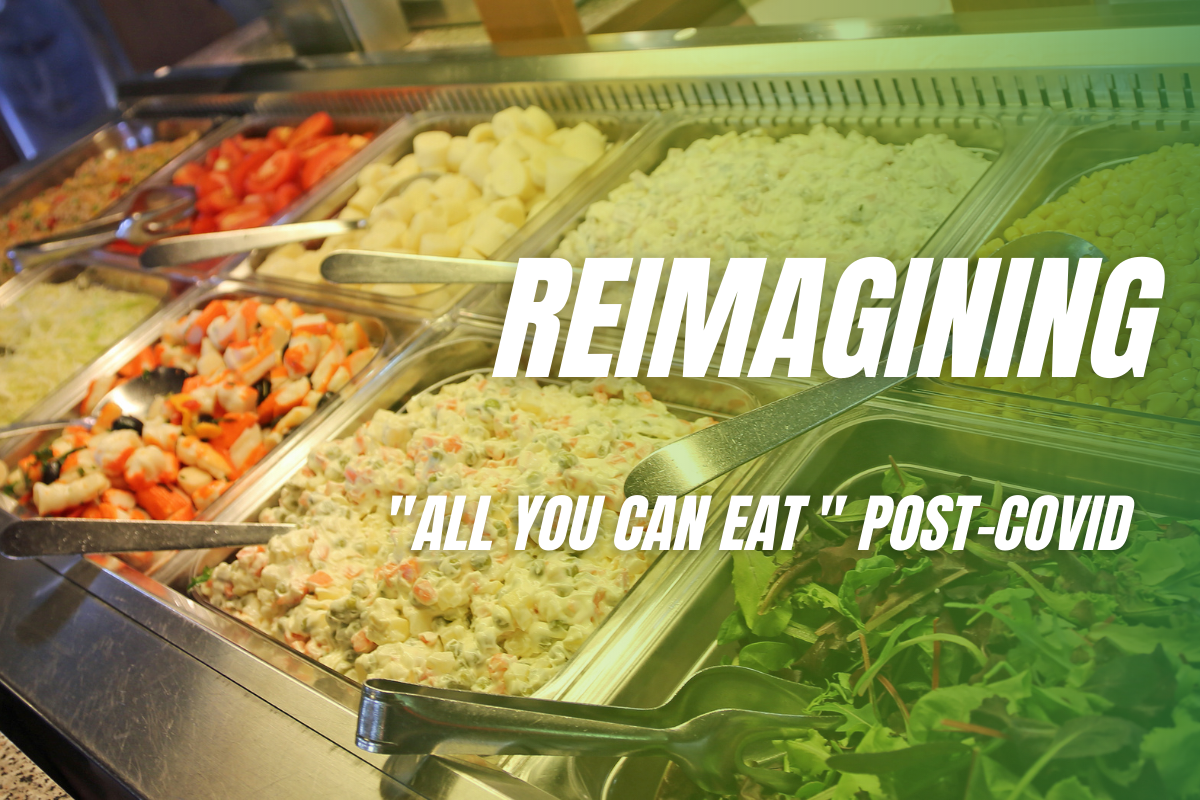
The world is starting to open back up, and so, too, are our beloved restaurants and foodservice establishments.
We’re all grateful for this, especially knowing that while it may take some time, things should pretty much return to normal — eventually — in a post-COVID world. There is one type of operation, though, that still might look a little different.
Buffets.
Many consumers have stated they wouldn’t feel comfortable going back to such open settings that allow anyone and everyone to grab what they want whenever they want. The once-beloved tradition is simply not feasible in current times and may not make a true comeback for years to come. So, how are restaurants and hotels recreating the buffet experience?
PIVOTAL MOVES
While all-you-can-eat is often associated with buffets, it doesn’t have to be. Some restaurants have been using this model forever, most notably Korean BBQ service. K-BBQ has gained popularity with the rising trend of Korean cuisine, and this model offers all-you-can-eat servings that are personal to the individual table. Consumers will order from a specialized menu, paying a flat rate and the dishes will be delivered to their table rather than going to a buffet.
This has been shown to be successful in K-BBQ settings and many restaurants are using the method to transition their services. By offering an “endless supply” of selected dishes, customers are able to still get the all-you-can-eat experience without the fear of cross-contamination.
This style of service also requires moving foods from the kitchen to the tableside while preserving safety, freshness, temperature, and quality. With the right food delivery system, operators can not only serve amazing foods but also reduce the potential for food waste by rationing serving sizes.
MOVING THE SOCIALLY DISTANCED LINE ALONG
No restaurant is escaping the transition of re-opening unscathed, and that’s part of why many businesses are relying on disposable items so heavily for to-go orders and delivery services. Unfortunately, that’s not exactly cost-efficient and adds an extra layer of labor to the daily list of tasks. One solution that vendors are finding success with for maintaining a somewhat buffet-style service is by mimicking cafeteria lines.
Consumers are encouraged to socially distance in lines, but they can experience an almost traditional buffet by moving through an assembly line. While in line, they can choose from pre-assembled plates from the menu or encounter staff-served options that don’t require any consumer engagement with serving utensils.
Serving lines and foodservice solutions are a critical component of this type of service. Units that are easy to configure, provide visibility, ease-of-use, and are easy to clean can help make operations more efficient and profitable.
ORDER UP
In addition to utilizing Korean BBQ settings and Cafeteria line styles, buffet models can benefit from ordering directly from the table. This would include a tablet or mobile device that allows customers to quickly review the menu and place their orders. The virtual order is then sent directly to the kitchen to begin preparation and helps create a hybrid of ordering on the go while still enjoying the dine-in experience.
This solution may also assist in offsetting some labor costs, reducing the number of front-of-the-house staff needed on shift. Staff that are serving would focus more on seating customers and delivering orders rather than constantly taking orders and checking on tables.
STAY UP TO DATE WITH THE LATEST FOODSERVICE TRENDS
There’s no single direct solution to getting back to normal, and the truth is that the current day foodservice is creating a new normal. With modern-day technology, adjusting to local mandates and re-imagining the industry’s day-to-day setup is constantly changing.
Our goal at Lakeside is to keep you informed as well as provide you with serving stations, portable serving carts, serving lines, countertops that bring you innovative solutions for a post-COVID experience. The all-you-can-eat buffet tradition might look a little different from now on, but you can still create that sense of enjoyable engagement for consumers dining with you.
